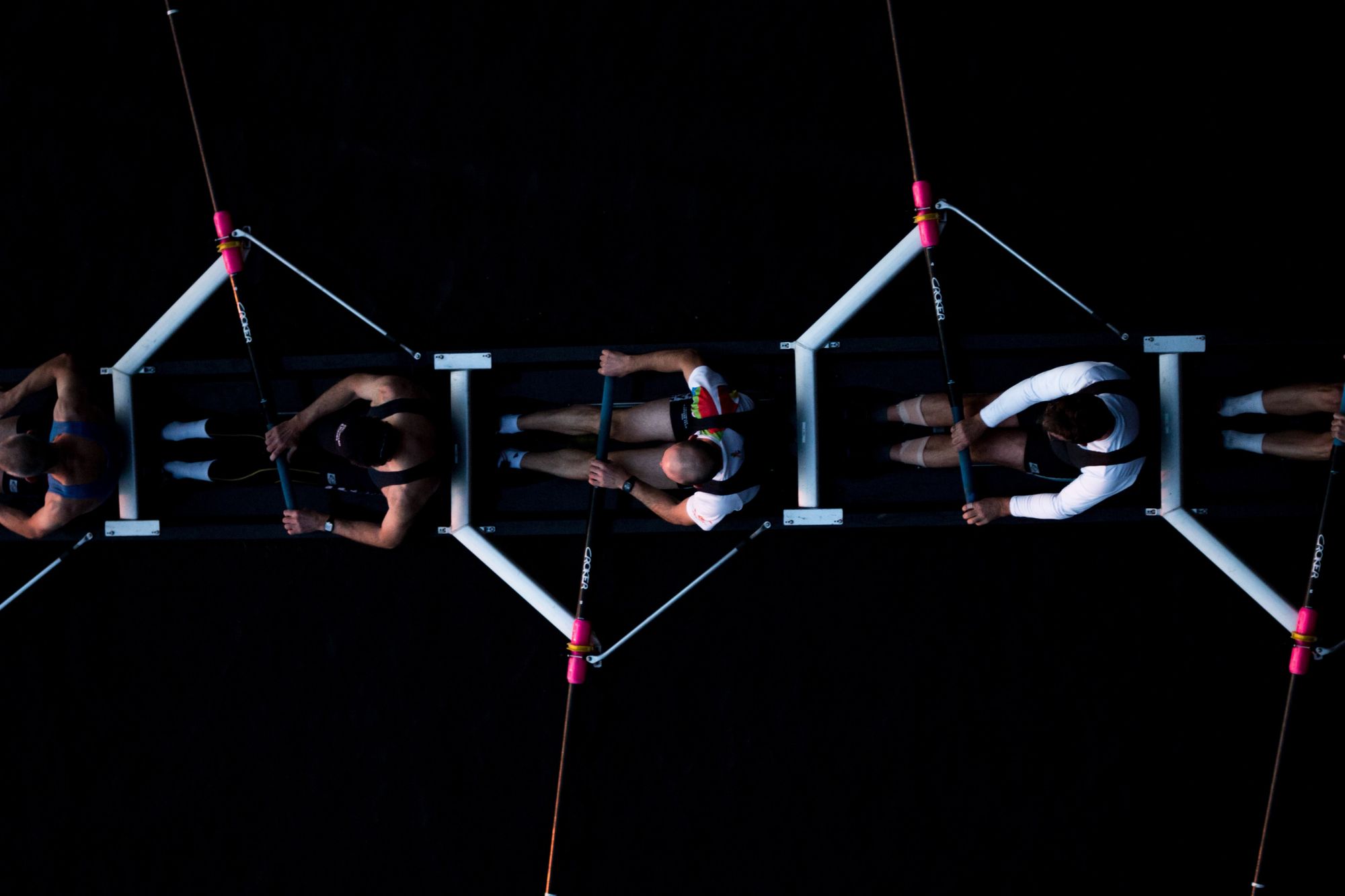On Results Versus Process

“A man cannot understand the art he is studying if he only looks for the end result without taking the time to delve deeply into the reasoning of the study.”
― Miyamoto Musashi
When I was in high-school, rowing was my 'thing'. I was border-line obsessed and anyone that has ever been in a boat on glass-like water just as the sun is rising will know why. Furthermore, anyone who has managed to make a boat "sing" in those conditions will never stop seeking the same high. It's a truly incredible feeling; even though the boat's 'song' is actually audible, it's the vibration that reverberates through the entire body. That sensation, combined with the intense concentration required to hold those notes, creates a complete and utter sense of presence. I am yet to experience anything quite like it.
I loved rowing enough to get relatively good at it. I have an entire box filled with medals at home, some of them South African Championship golds. I had the privilege of traveling to the United States to compete in the Head of the Charles in Boston – the biggest regatta in the world – where we placed 27th in our age category up against schools and universities from around the globe. Rather than trying to blow my own horn here, I am trying to get to a specific point: to get to that level requires a lot of hard work. It requires hours and hours of rowing up and down strips of water, sitting on Ergos (rowing machines), and endless sacrifices. Moreover, it requires discipline–pushing through the endless stream of noise created by a mind begging for the pain to stop during intense training.
And I am thankful for that. It's allowed me to push myself in many other areas in my life. It's enabled me to make exercising a non-negotiable part of my routine into my thirties which has resulted in keeping in relatively good shape. But it has also turned exercise into a task to be done, rather than something to be enjoyed. Rather, it's shifted the enjoyment to the feeling that comes after working out, from the process to achievement.
I am not suggesting that achievement isn't important, rather that it should be a byproduct of the process, not its purpose.
I came to this realisation in Zurich recently when a friend suggested that we go for a run. After a couple of weeks without any exercise–an anomaly in of itself–and copious amounts of chocolate, it was the last thing that I felt like doing. But, I put on my running shoes and focused on the feeling that I would inevitably get after the workout. I knew that if I just got through the pain of the run, I would be happy that I went and, more importantly, get stuck into some treats later that evening.
Ten minutes into the run, my friend stopped running. Apparently, he wanted to take a picture of graffiti on a pillar in the river. I, however, continued. For me, stopping, for any reason was akin to giving up. Stopping went against everything I thought I had learned; it simply wasn’t an option. Twenty meters later, I got stopped by a traffic light. My friend caught up with me and, in some weird display of guilt, I quipped about how I didn’t want to stop, and ended having to stop anyway. He simply responded with: why?
I am sure that he meant his question as a passing comment in response to my less-than-obvious dig at him wanting to stop, but it rang through my head like church bells in London: far more times than expected and at seemingly random points in time. Why was I so against stopping? Sure, I could feed myself the same drivel I had been for the last thirteen years, but I knew it was all bullshit. I wasn’t training for the biggest regatta in the world, or for SA rowing championships. Hell, I wasn’t training for any event whatsoever. Yet, my focus was on the end, the outcome. I realised that I had been arbitrarily manufacturing outcomes to strive towards every time I trained; in this case, a guilt-free glass of wine.
Upon further reflection, I found that I was applying the same warped logic to my entire life. Everything I did was a task to get through, a hurdle to overcome, or an end to get to. I would frantically wash dishes so that I could sit on the couch and enjoy the feeling of having been productive. I would invent menial rewards just to spur myself through a piece of work, whether I enjoyed it or not. And I would lower my eyes as I ran to get to the end, and miss everything that made the end worthwhile.
I had been trading sustained pleasure for fleeting moments and, what’s worse, I thought I was getting a deal.
The rest of the run was slow and enjoyable, erratic and unpredictable. I took in a warm day in Zurich, sat on a random bench, and even took note of wildflowers growing in the forest. Not only was it the most enjoyable run I ever had, but I didn’t want it to end.
For the last thirteen years, I have occasionally wondered why I stopped rowing after high-school but I had never been able to settle on an honest answer. I had preconfigured answers for anyone that asked–sports politics, access, etc.– but nothing that felt anything like the truth. But during that run in Zurich, I got my answer. I realised that the reason I had gotten so good at rowing was the enjoyment that morning rows brought, not the never-give-up mentality.
And the reason I had stopped was that I focused on results instead of rowing.
